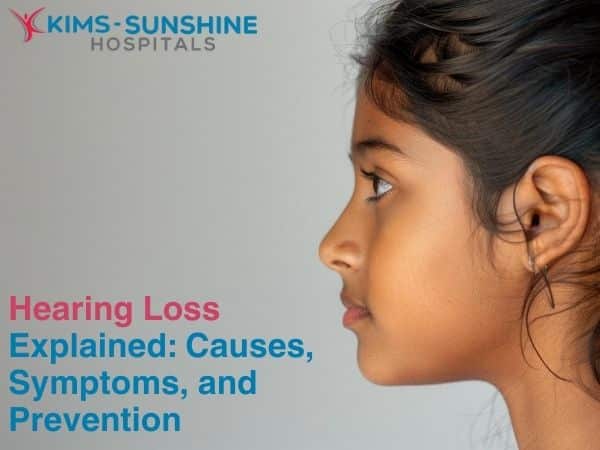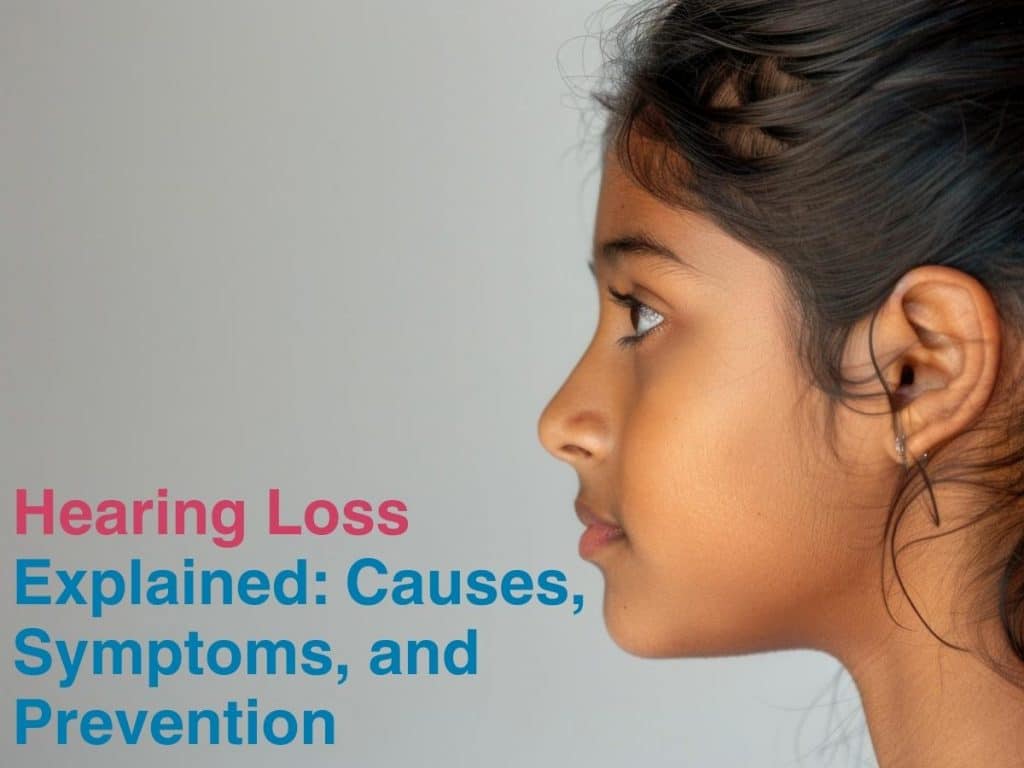
Hearing Loss Explained: Causes, Symptoms, and Prevention

Introduction
“The most important thing in communication is hearing what isn’t said,” management guru Peter Drucker once remarked. But what happens when we struggle to hear what is said? Hearing loss affects millions worldwide, often creeping up
silently like a thief in the night. This blog post will delve into hearing loss, exploring its causes, symptoms, and prevention methods, helping you tune into better ear health.
Common Causes of Hearing Loss in Adults
Imagine your ears as sound receivers, much like the giant satellite dishes in the movie “Contact.” Just as those dishes could be disrupted by various factors, our hearing can be compromised by:
- Age-related deterioration (presbycusis)
- Prolonged exposure to loud noises
- Genetic predisposition
- Ototoxic medications
- Head or ear injuries
- Infections
- Chronic diseases like diabetes or hypertension
Fun fact: Did you know that Ludwig van Beethoven, one of the greatest composers in history, suffered from progressive hearing loss? Despite this, he continued to compose masterpieces even after becoming completely deaf.
Symptoms of Sensorineural Hearing Loss
Sensorineural hearing loss occurs when there’s damage to the inner ear or auditory nerve. Symptoms include:
- Difficulty hearing high-pitched sounds
- Trouble understanding speech, especially in noisy environments
- Tinnitus (ringing in the ears)
- Feeling of fullness in the ears
In the words of Helen Keller, who was both deaf and blind, “Blindness separates people from things; deafness separates people from people.” This underscores the social impact of hearing loss.
How to Prevent Noise-Induced Hearing Loss
Remember the scene in “A Quiet Place” where the characters must remain silent to survive? While we don’t face such extreme circumstances, protecting our ears from harmful noise levels is crucial. Here’s how:
- Wear protective earplugs in loud environments
- Keep volume at a moderate level when using headphones
- Take regular breaks from prolonged exposure to loud sounds
- Follow the 60/60 rule: Listen at 60% volume for no more than 60 minutes a day
Treatment Options for Conductive Hearing Loss
Conductive hearing loss occurs when sound waves can’t reach the inner ear. Treatment options include:
- Removing ear wax blockages
- Surgical procedures to repair the eardrum or bones
- Antibiotics for ear infections
- Hearing aids
Diagnosing Hearing Loss: Tests and Procedures
Diagnosing hearing loss is like being a detective, piecing together clues to solve a mystery. The process may involve:
- Physical examination of the ear
- Audiometry tests
- Tympanometry (to check eardrum function)
- Acoustic reflex testing
- Otoacoustic emissions testing
Age-Related Hearing Loss Prevention Tips
While some hearing loss with age is normal, you can minimize its impact:
- Maintain a healthy diet rich in antioxidants
- Exercise regularly to improve blood flow
- Manage chronic conditions like diabetes and hypertension
- Avoid excessive noise exposure
How to Recognize Early Signs of Hearing Loss
Early detection is key. Watch for these signs:
- Frequently asking people to repeat themselves
- Difficulty following conversations in noisy places
- Turning up the TV or radio volume higher than others prefer
- Feeling that others are mumbling
Impact of Medications on Hearing Loss
Some medications can affect hearing, much like how kryptonite affects Superman. These include:
- Certain antibiotics
- Some chemotherapy drugs
- High doses of aspirin or other pain relievers
- Loop diuretics
Always discuss potential side effects with your healthcare provider. As the saying goes, “An ounce of prevention is worth a pound of cure.”
Managing Hearing Loss with Hearing Aids and Implants
Modern technology offers various solutions, bringing to mind Tony Stark’s high-tech gadgets in “Iron Man”:
- Digital hearing aids
- Cochlear implants
- Bone-anchored hearing systems
- Middle ear implants
Hearing Loss in Children: Causes and Treatments
Pediatric hearing loss can result from:
- Genetic factors
- Infections during pregnancy or early childhood
- Birth complications
- Exposure to loud noises
Conclusion:
Hearing loss is a complex symphony of causes, symptoms, and treatments. By understanding its nuances and taking preventive measures, we can maintain better ear health. If you suspect hearing loss, don’t let it be your silent battle –
consult an audiologist or ENT specialist. As Helen Keller beautifully put it, “The only thing worse than being blind is having sight but no vision.” Let’s extend this wisdom to our hearing – the only thing worse than
hearing loss is having ears but not taking care of them. Remember, our ears are the doorways to a world of sound – from the whisper of a loved one to the melody of music. Let’s keep those doors wide open for as long as we can.
Frequently Asked Questions

Dr. Sudhamsh Thirunahari
MBBS (Osmania), MS (ENT)
Fellowship in Rhinology & Anterior Skull Base Surgery
Consultant ENT Surgeon






